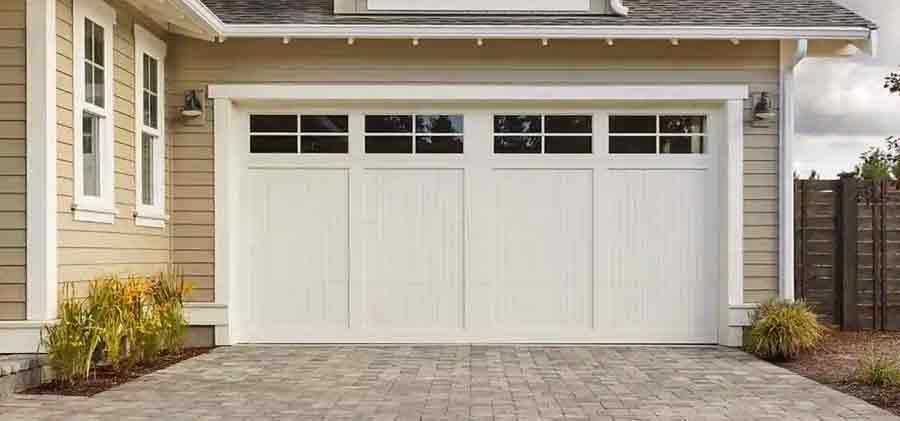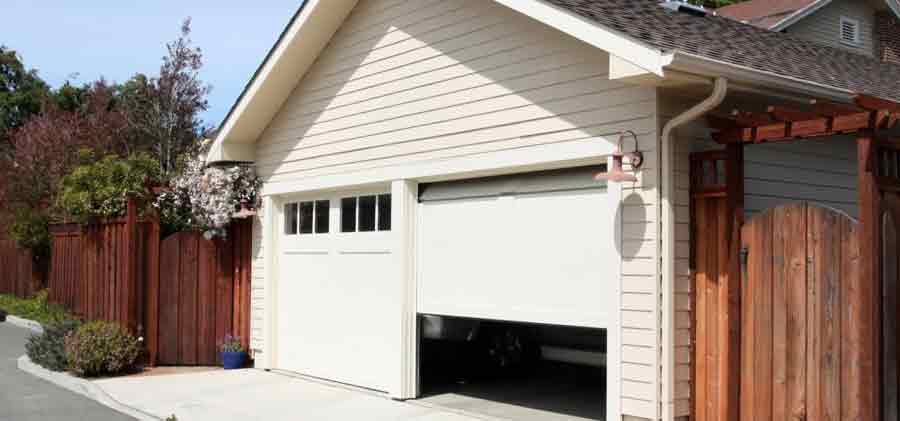Weather can greatly influence many aspects of our homes, and one area that often gets overlooked is the garage door. In Los Angeles, the weather impact on garage doors can cause various issues.
Understanding these problems helps homeowners take the right steps to protect their garage systems.

Impact Of Weather On Garage Doors
Garage doors are not immune to the elements. The weather impact on garage doors varies from heat and humidity to cold and storms. Each season brings its own set of challenges, and recognizing these can help prevent costly repairs.
1. Heat and Humidity
In hot weather, high temperatures and humidity can lead to problems. Prolonged exposure to heat causes the material of the garage door, whether wood or metal, to expand.
This may result in warping or misalignment, making it difficult to open and close the door. The weather impact on garage doors is particularly noticeable in areas with high humidity.
Humid conditions can lead to rusting in metal parts and rotting in wooden doors. This highlights the importance of humidity and garage sensors to monitor conditions.
2. Cold Weather Conditions
On the other end of the spectrum, freezing temperatures can also cause significant problems. When temperatures drop, garage doors can contract.
This can lead to stiffness in the materials and frozen springs. Homeowners may find their doors hard to operate in this weather.
The temperature-related damage can even make it impossible to open the garage door if ice builds up around the base.
3. Snow and Ice
Snow accumulation can create additional issues. When snow and ice build-up around the garage door, it can freeze the weather stripping at the bottom.
This can prevent the door from opening or closing properly. You should clear the snow from the area around your garage door.
4. Rain and Moisture
Heavy rain can have a negative impact on garage doors as well. If the metal components of your garage door are constantly exposed to moisture, they will begin to corrode over time.
This deterioration weakens the door and can lead to malfunctions. To combat these issues, consider installing rainproof garage systems or adding protective seals.
5. Strong Winds
High winds may also cause damage, especially during storms. Strong gusts can stress the panels and hinges of garage doors, creating dents or breaks.
It is crucial to understand the weather impact on garage doors and take the necessary precautions to protect them.
Seasonal Garage Care
Different seasons require unique care to mitigate the weather impact on garage doors. Here’s a look at some important seasonal garage care tips:
- Winter Care:
You should monitor the temperature closely in the winter season. Ensure that the weather seals are in good shape. Regularly remove snow and ice build-up around the garage door. This will help reduce temperature-related damage and keep the door functional.
- Spring and Fall Maintenance:
These seasons often bring rain. Inspect and replace weather stripping if needed. Additionally, consider applying waterproof paint or sealants to protect against moisture. This can prevent further issues down the line from rain and humidity.
- Summer Maintenance:
You should check the door for signs of warping in the summer season. If you notice any misalignment, you should apply lubricant to the moving parts to protect it from heat-related wear and tear.
Weatherproofing Tips
To extend the life of your garage door, implementing weather proofing tips is key. Here are several strategies to consider:
- Install a Threshold Seal: A good threshold seal can prevent water from seeping in. It also reduces the chance of mold growth and damage.
- Add Extra Weather Stripping: Apply additional weather stripping to the sides and top of your garage door. This can protect the garage door from moisture and cold air.
- Caulk Windows: If your garage door has windows, you can caulk them to prevent moisture from entering inside. Thiscan reduce the risks of weather impact on garage doors.
- Seal the Garage Floor:Use waterproof paint or epoxy for the garage floor to guard against water infiltration. You can seal the floor helps to maintaina dry space during rainy seasons.
- Insulate Your Garage Door: you should insulate your garage door to regulate temperature inside the garage. It also provides added protection against extreme temperatures.

Conclusion
Understanding the weather impact on garage doors is vital for maintaining a functional and safe home. By taking proactive steps and following seasonal garage care tips, homeowners can avoid costly repairs.
You should do regular maintenance with weatherproofing to enhance the life of garage doors. Protecting your garage door against the weather damage ensures that it remains safe and operational.
FAQs
Humidity can lead to significant issues for garage doors. When the air is humid, the moisture can cause wooden doors to swell and become misaligned. In metal doors, humidity can lead to rust and corrosion of components like springs and tracks. Regular maintenance, such as inspecting and replacing weather stripping, is crucial to minimize the impact of humidity on garage doors.
In winter, garage doors can face several challenges. Freezing temperatures can cause the materials to contract, making them hard to operate. Ice and snow buildup around the door can freeze weather stripping, preventing the door from opening or closing properly. To prevent these issues, clear snow and ice regularly and ensure that the seals are in good condition before winter sets in.
You can install a threshold seal to prevent water infiltration. Add extra weather stripping around the sides and top of the door. Caulk any windows to seal them tight against moisture. Additionally, you can insulate your garage door to maintain consistent temperatures and protect it from extreme weather. Regular inspections and maintenance are essential for long-term effectiveness.


